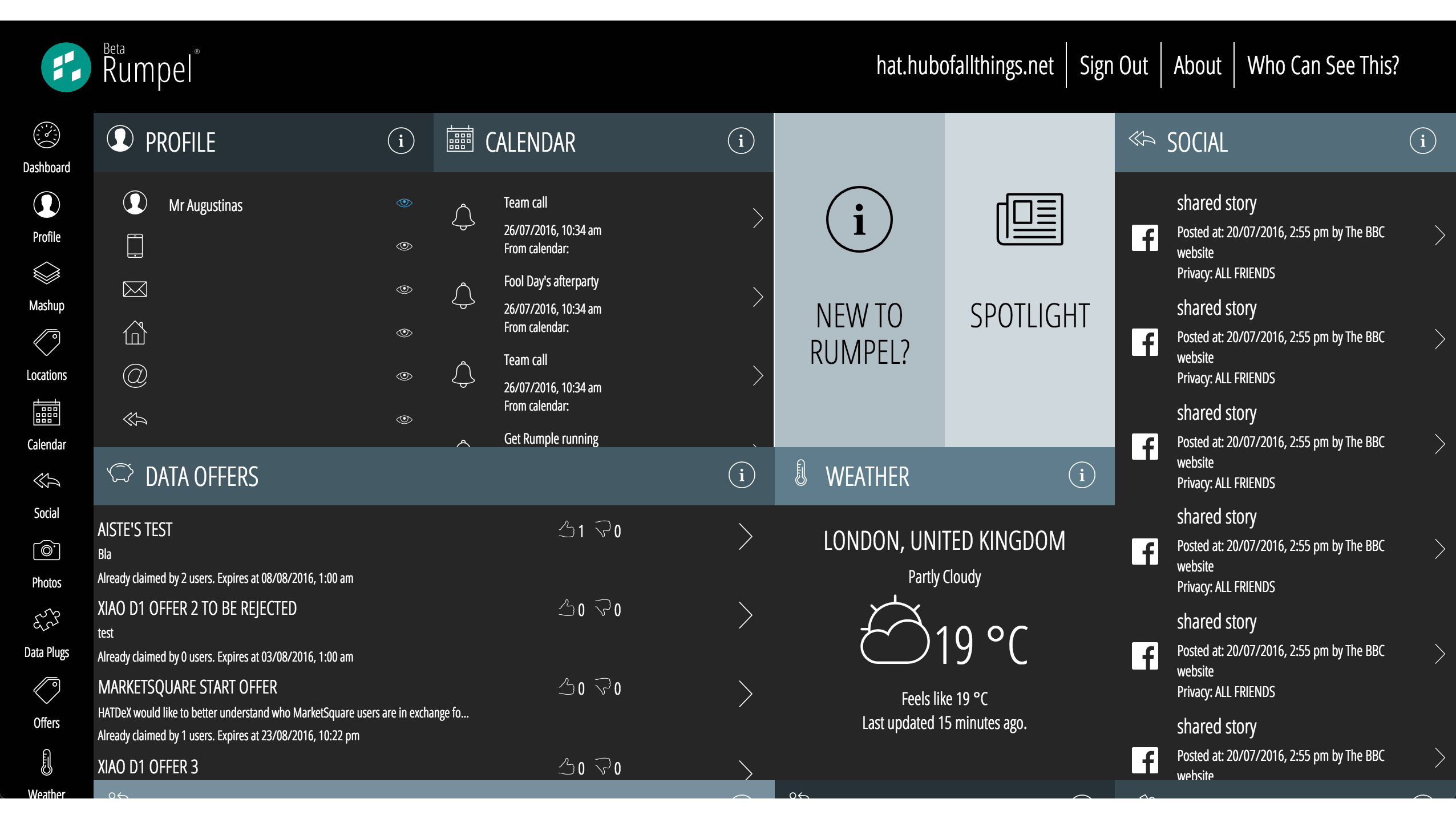New web browser lets you take back control of your personal data
Created by researchers at the University of Warwick

Today, it's harder than ever to keep track of where information about you is stored online. Between various social networks, apps, email inboxes, shopping sites, calendars and cloud storage systems, your digital footprint is scattered far and wide.
But researchers from the University of Warwick have built a browser that they claim can help you cope with this splintering of our online identities. It's called, a little bizarrely, 'RUMPEL'.
RUMPEL is part of a project called the Hub-of-All-Things, or HAT for short. You can sign up for a HAT over at the HAT Foundation website, and it'll collate all the data stored about you on the web, letting you control, combine and share it however you like.
Once you've got a HAT, you can sign up for the RUMPEL browser beta, which began on 26 July.
Its creators say that the browser makes it easier to visualise, understand and organise various types of personal data.
Claim Your Data
In the future, it will apparently also include automated suggestions and reminders based on your needs. For example, depending on your interests, location and what you've enjoyed previously, it might reorder items in a news feed.
Irene Ng, a marketing professor at the University of Warwick who led RUMPEL's development, said: "It's time for people to claim their data from the internet."
Get daily insight, inspiration and deals in your inbox
Sign up for breaking news, reviews, opinion, top tech deals, and more.
"The aim of RUMPEL is to empower users and enable them to be served by the ocean of data about them that's stored in all kinds of places online, so that it benefits them and not just the businesses and organisations that harvest it," she added.
"The strapline 'Your Data, Your Way' reflects our determination to let people lead smarter lives by bringing their digital lives back under their own control."
The software has been released under an open source license, and is compatible with all operating systems. You can find out more at the project's website.
- Duncan Geere is TechRadar's science writer. Every day he finds the most interesting science news and explains why you should care. You can read more of his stories here, and you can find him on Twitter under the handle @duncangeere.
